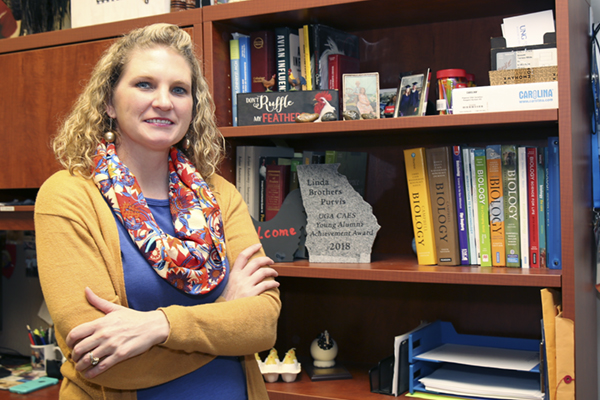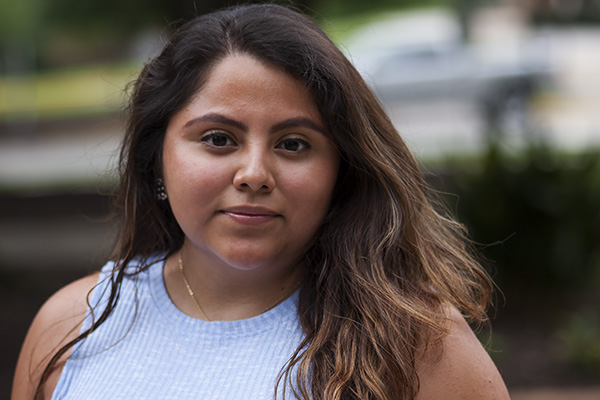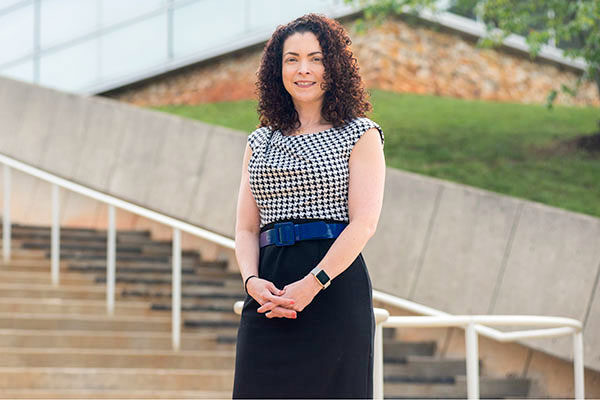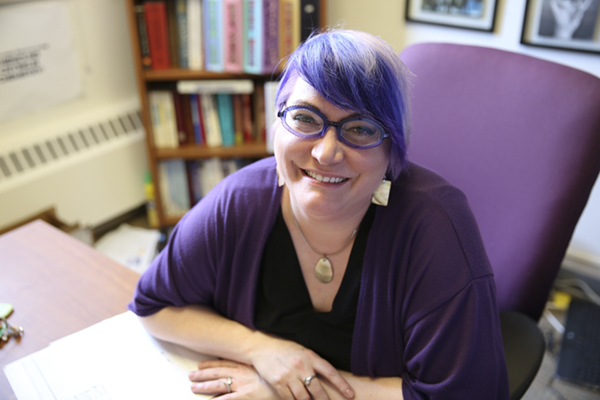Ashlee McCaskill
A lifelong love of plants is something Dr. Ashlee McCaskill, a University of North Georgia (UNG) biology professor and director of the Environmental Leadership Center, hopes to instill in her students.
"I have loved plants my entire life, and I find it amazing that plants are the reason life is able to live on this planet. They are the key organisms that convert solar energy into usable forms, including oxygen, so that other life forms can exist," McCaskill said. "It is fascinating to study how DNA works and how it can be manipulated, too. And, plants are extremely beautiful."
McCaskill said many students enter her botany classes with a general apathy toward plants and they are only taking the course because it is a requirement for some majors.
"I hope that I am able to instill a greater respect for plants that students will carry with them throughout their lives and also share their knowledge with others," McCaskill said.
Through her leadership, McCaskill aims for students to gain an appreciation for all the roles plants play in their lives ranging from simple food sources to medicine and energy.
"I lead them to discover the bigger picture of our world, especially in regard to ethnobotany," she said.
McCaskill earned a Bachelor of Science degree in botany from the University of Arkansas at Fayetteville and her doctoral degree in plant molecular biology from Cornell University in Ithaca, New York.
She oversees the departmental greenhouse and is the curator of the botanical teaching collection, herbarium, and native garden. McCaskill is also chair of the Southern Section of the American Society of Plant Biologists.
McCaskill hopes to ignite student curiosity of plants through introducing them to the Titan Arum (Amorphophallus titanium), often referred to as the corpse plant, which only grows on the island of Sumatra and is in danger of extinction due to loss of habitat. The plant produces the largest inflorescence (collection of flowers) on the planet, reaching heights of six feet, McCaskill said.
"It smells like rotting meat when it blooms, so it can attract pollinators which typically feed on decaying flesh, so they are attracted to the foul odor," McCaskill said. "I purchased one for our teaching collection because it is a very charismatic plant, and I knew that it would be really good at igniting student curiosity. It bloomed in 2020, so it may be several years before it has the energy reserves to bloom again."
Research, McCaskill said, allows her to share the excitement of discovery with her students, something that can be difficult to accomplish in formal lectures and textbooks.
"Hands-on teaching and learning truly inspire me," she said.
Students have service opportunities at the woodland garden on UNG's Dahlonega Campus, a space McCaskill established.
"I received a grant from the North Georgia Community Foundation — Chattahoochee Oconee Forest Interpretive Committee to install the garden," she said. "This project involves students from across the Dahlonega Campus to clear away invasive species and trash to create a beautiful and educational garden. With the grant funds, we built trails and planted some incredible plants.”
McCaskill said she hopes to use the garden to work with interns and even community Master Gardeners who want to learn more about applied ecology.




